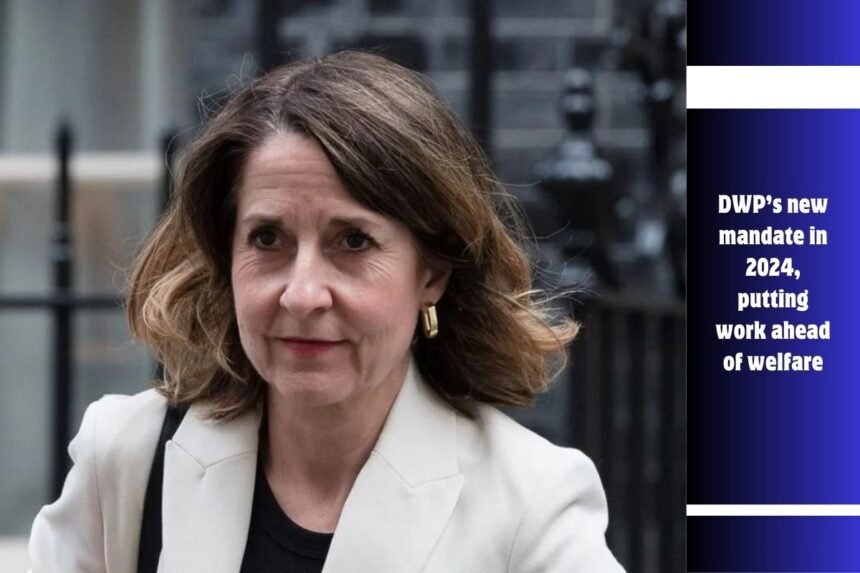Liz Kendall, the new minister, said that if the Labour party wins power, the Department for Work and Pensions (DWP) will put jobs ahead of managing welfare. Kendall talked about her plans to change the DWP in Barnsley. She said that the agency would focus on bigger issues that affect people’s ability to get jobs, like healthcare, skill development, child care, and transportation.
About 11 million people, or 25% of the working-age population in the UK, are not working. 9.4 million of them are considered “economically inactive,” and 1.7 million say they want to work but can not because they are sick or have to care for someone. An 80% job rate is what Labour wants to reach. This is higher than the average employment rate in any G7 country, which is between 70% and 75%.
The plan calls for major changes to job centers. For better help with job hunters, Jobcentre Plus and the National Career Service will be merged. Conservative critics want a specific plan to reach these goals, pointing out that they have hired over four million people since 2010 and reduced the number of people on welfare. Kendall also wants to give local mayors more power to deal with economic stagnation by creating personalized growth plans for their areas. This would mean that jobless problems would be dealt with less centrally.
Key Points from Kendall’s Speech
In a proposed Labour government, the Department for Work and Pensions (DWP) will shift its focus from mainly managing welfare benefits to actively promoting work. This is what the department’s new minister, Liz Kendall, said. She said these things during a speech in Barnsley, where she pushed for a more comprehensive approach to fighting unemployment.
Dire Labour Market Inheritance
Kendall highlighted the grim reality inherited from the past 14 years:
The UK is still the only G7 country whose job rate has not reached the level it was at before the pandemic.
2.8 million people can not work because they are sick or hurt.
One in eight young people do not have a job, go to school, or get training.
Over the next five years, £30 billion more will be spent on sickness and disability payments.
A lot of people are stuck in low-paying, low-quality work with few opportunities to move up.
New Approach to Employment Support
Kendall said that the current method for helping people get jobs is out of date and that bigger problems with health, skills, childcare, and transportation need to be fixed. She said that the DWP’s focus on Universal Credit had made them forget about these important issues.
Also read:-Huge DWP Changes July 2024, How it affects PIP and other benefits?
Kendall said that the current method for helping people get jobs is out of date and that bigger problems with health, skills, childcare, and transportation need to be fixed. She said that the DWP’s focus on Universal Credit had made them forget about these important issues.
Empowering Local Leaders and Tailored Schemes
Kendall’s plan is based on giving local leaders the power to fight economic stagnation. She said that local areas would be given the power and tools to create work, health, and skill programs that are combined and fit the needs of their residents.
Labour Market Advisory Board
A new Labor Market Advisory Board will be set up, and Paul Gregg, who used to be the director of the University of Bath’s Center for Analysis of Social Policy, will be its chair. This board will help make these changes happen. This board will meet every three months to guide the DWP’s work and give tips and information about the job market.
White Paper and Future Plans
A full plan to get Britain going again will be laid out in the upcoming Government white paper. Important parts are:
- A government service for jobs and careers that will help more people get jobs and move up in their careers.
- New work, health, and skill plans for people who are not working were made by leaders in the area.
- A promise for all young people between the ages of 18 and 21.
This program is part of a larger, cross-government effort to increase employment. Other parts of this plan include the creation of Skills England and work to shorten NHS wait lists, which will make society and the business healthier.
The way the government deals with jobs has changed a lot since Kendall’s speech. The DWP wants to make the job market more dynamic and open to everyone by putting more emphasis on work over benefits and giving local leaders the power to come up with their own solutions. With this big change, the government hopes to make jobs better, raise living standards, and get Britain back to work.
